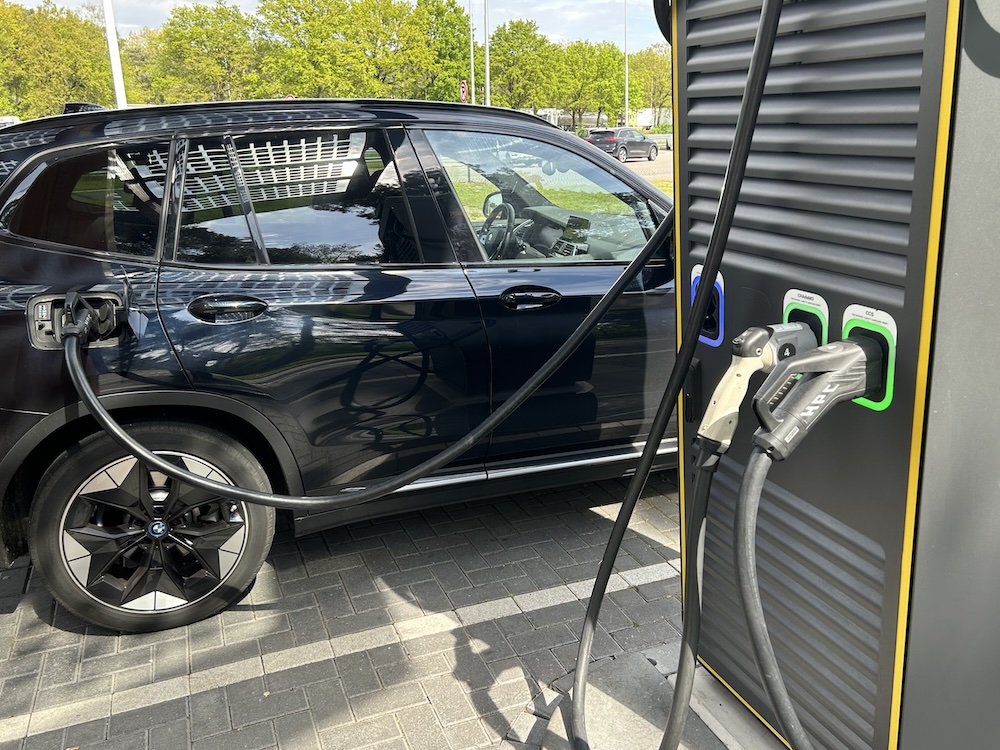Electric driving offers significant savings on operating costs, especially when the car is mainly charged at home or at work.
Charging electric cars has different cost aspects that depend on various factors such as the location of charging, the type of charging station, and whether the owner uses solar panels. In this article we look at the costs of charging an electric car, both at home and at public charging stations, and compare them with the costs of driving on traditional fuels such as petrol and diesel.
Charging an electric car at home is generally cheaper than charging at a public charging point. The costs for charging at home can vary from €0,25 to €0,35 per kWh, depending on electricity prices and whether solar panels are used. Significant savings are possible for those who have solar panels installed at home. These can significantly reduce electricity costs, sometimes to almost zero, especially if the sun provides enough energy to charge the car.
On the other hand, the costs for charging at public charging stations are higher, due to the service costs that are in addition to normal electricity prices. Prices at public charging stations vary considerably and can range from €0,33 to €0,61 per kWh, depending on the location in the Netherlands.
Driving on electricity is often cheaper than driving on petrol or diesel. When you can charge at home or at work, the operating costs of an electric car are significantly lower than those of cars running on traditional fuels. This contrast becomes even clearer with the higher costs of public charging stations, although even then electric driving can often still be cheaper.

Electric cars play a key role in all future mobility plans. To use these cars successfully, you must of course be able to charge them quickly.
The speed at which a car is charged can also affect costs. Fast charging is generally more expensive than standard charging. For example, fast charging can cost up to €0,65 per kWh, while charging at home or at work can be considerably cheaper. The time it takes to charge an electric car also varies; a standard charge at home can take many hours, while fast charging is significantly faster, but at a higher cost.
charging stations
When switching to electric driving, the choice of a suitable charging station for your home is prominent. Fixed charging stations are a common solution for home use. They are permanently installed, often on a wall or on a pole, and can be supplied with or without a fixed charging cable. This type of charging station is particularly useful for households where the electric car is regularly charged at home. In addition, the choice of a model with or without a fixed cable can be important depending on the variety of electric cars in the household or visitors with other cars.
In addition, there are charging stations with a socket, which do not have a fixed cable and to which the user can connect different types of charging cables. This type of charging station offers maximum flexibility, especially useful in households with multiple electric vehicles or where guests regularly visit with different types of electric cars.
This choice is strongly determined by individual needs, technical capabilities of the home and the type of electric vehicle. There is a wide range of charging stations available, each with specific features that respond to different situations and preferences.
Smart charging stations offer advanced features such as charging management via an app, which allows users to schedule charging during off-peak hours to save costs and optimize energy consumption. This not only helps reduce electricity costs, but also prevents overloading the home network, a crucial aspect for the stability of the household energy supply.
For households that need fast charging, there are specific solutions such as 3-phase charging stations. These use high-voltage current and are especially suitable for cars with a large battery pack or for users who want to quickly charge their vehicle. The choice between a charging station with a Type 1 or Type 2 connector depends on the type of car and what is most common in Europe, with Type 2 being the standard.
Before purchasing a charging station, it is important to obtain good advice. A professional installer can not only advise on the most suitable option, but also assess the technical feasibility and identify necessary adjustments to the home installation. This is essential to ensure a safe and efficient installation that meets all needs.




